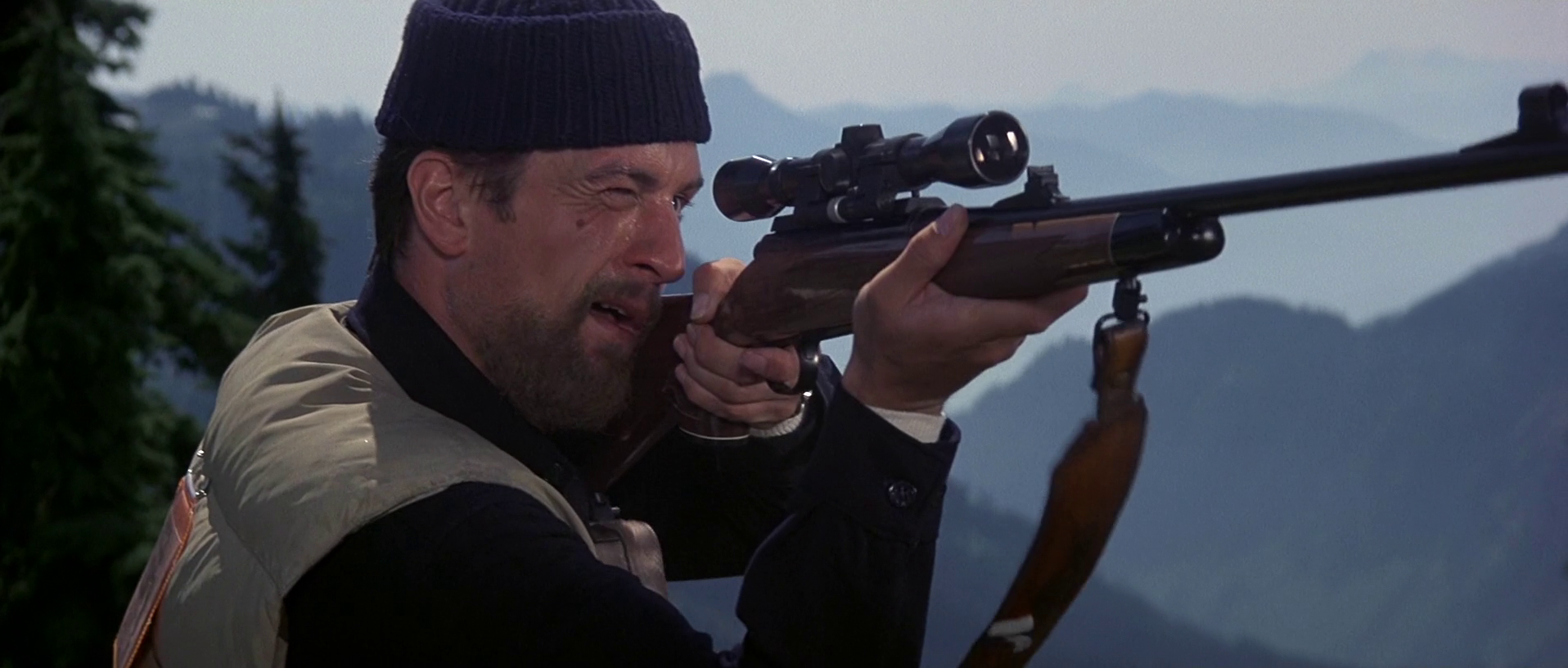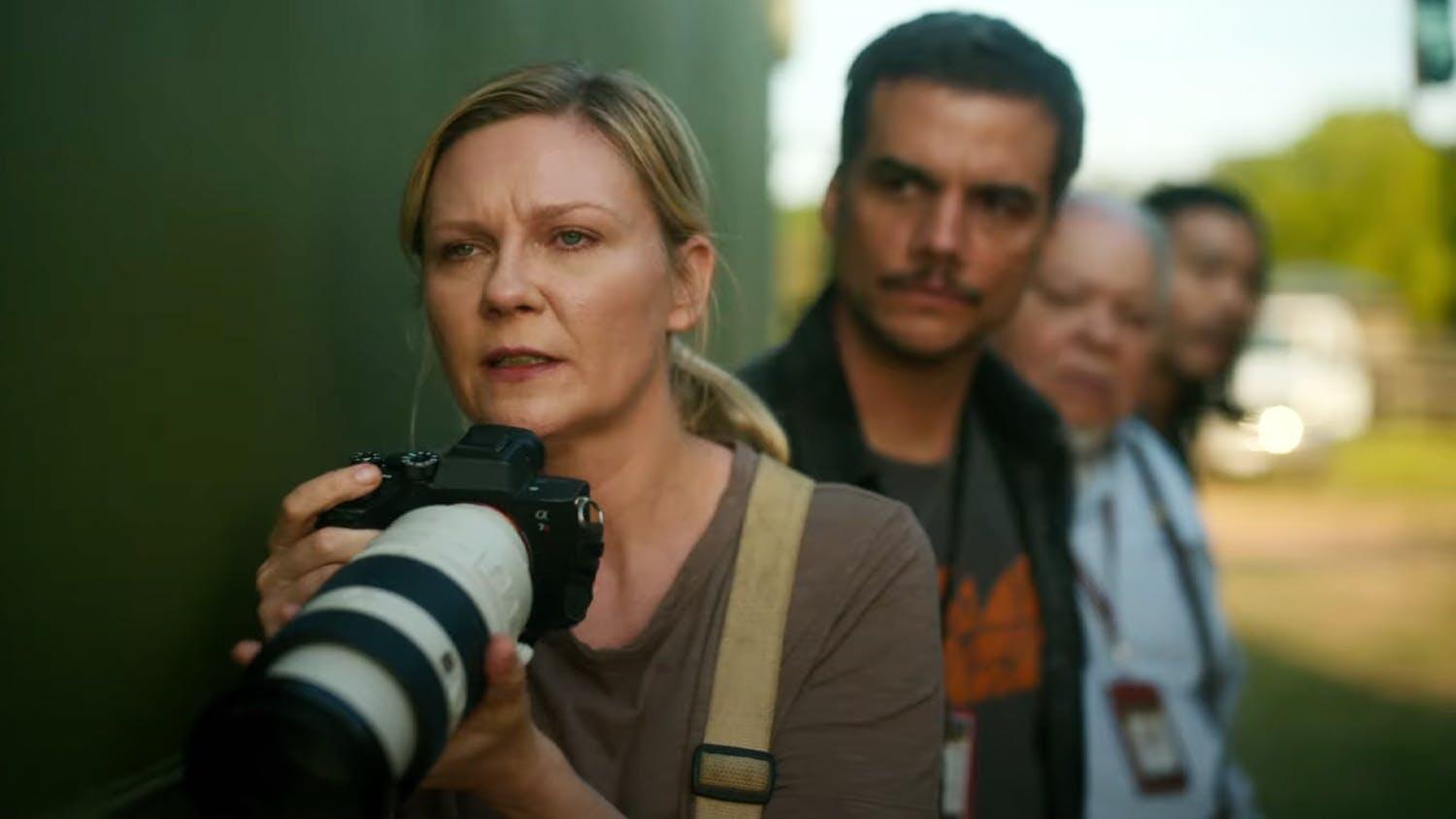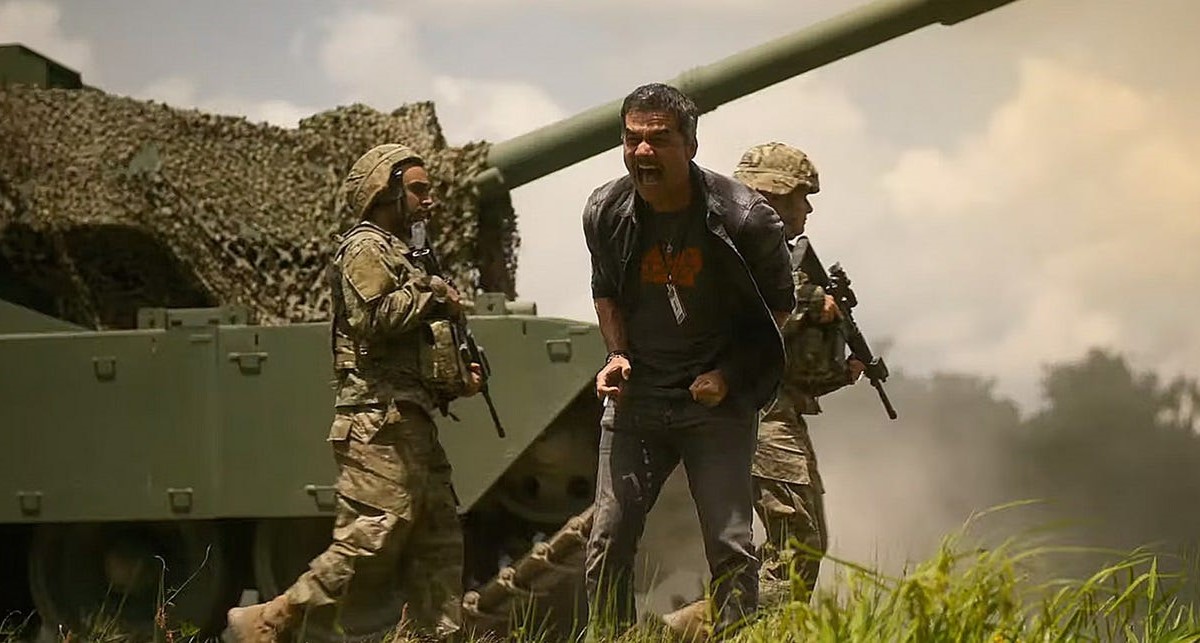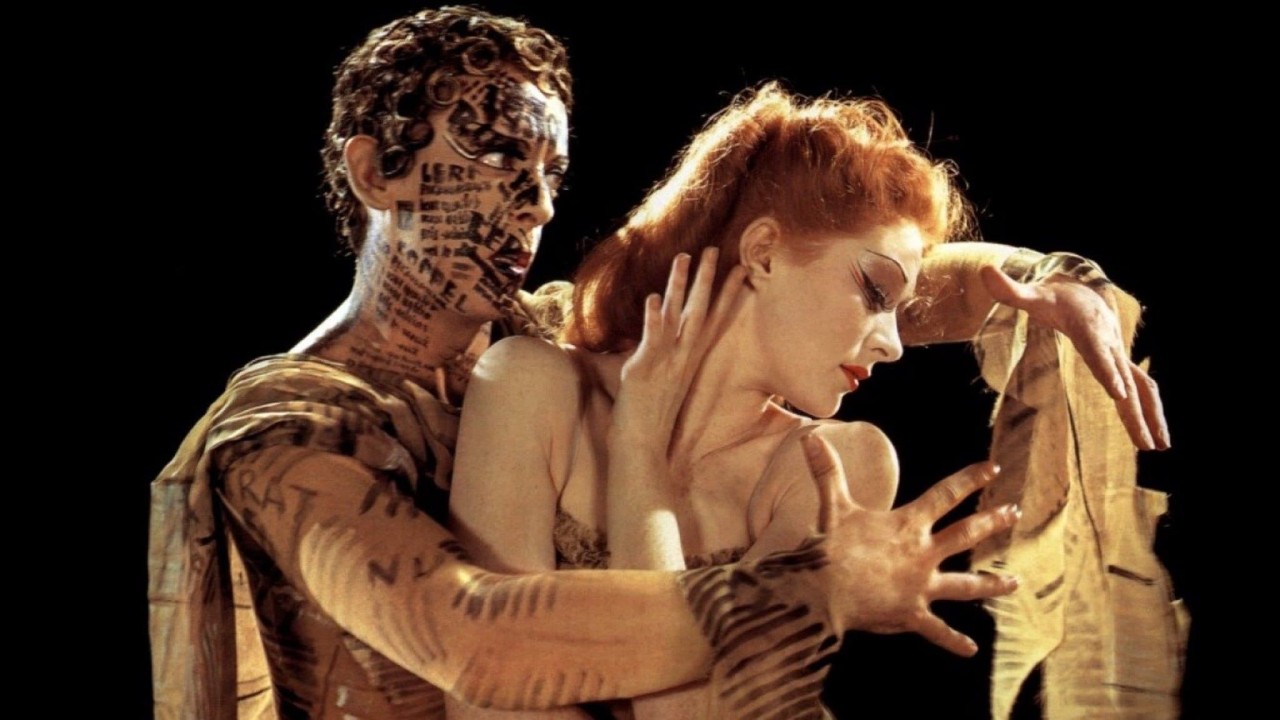“COME BACK TO THE MILL, NICK HONEY”
THE DEER HUNTER MISSES THE TARGET
Michael Cimino’s new film The Deer Hunter is the Vietnam film everyone has been waiting for—finally, a film that “gets beyond” the propaganda of right-wing films like The Green Berets and left-wing films like Coming Home. As Tweedledee and Tweedledum put it, “this is the first movie about Vietnam to free itself from all political cant” (Time); this “is the first film to look at Vietnam not politically, but. . .” (Newsweek). Trying to depoliticize a phenomenon as deeply rooted in American history and character as the Vietnam war would be a thankless task, like squaring the circle, but if anyone could do it, it would be somebody like Cimino, who—along with John Milius and Paul Schrader—is one of Hollywood’s New Wave, fast-lane writer-directors. Time/Newsweek has hit the nail on the head. The Deer Hunter offers an escape from politics. It slices through all that tiresome debate about who was right and who was wrong to something that everyone can understand: plain old racism. It was Us—white American boys—against Them—yellow Asian savages. The Yanks versus the Gooks. That simple. Like the enormously successful Midnight Express, The Deer Hunter mines one of the richest seams in the bedrock of American mythology: the innocent abroad—the Jamesian heiress, Wilson at Versailles—beset, beleaguered, betrayed.
The Eden whence these pilgrims set forth is a steel town called Clairton tucked away in the hills of Pennsylvania. The first third or so of the film is devoted to a double celebration: A wedding party for Steven (John Savage) is also a going-away-party for him and the two friends—Nick (Christopher Walken) and Michael (Robert De Niro)—who are to ship out with him the next day for Vietnam. This wedding ceremony is so lavishly and lengthily rendered as to make the Corleone wedding that kicks off The Godfather look like a City Hall quickie. Every gesture is lovingly captured with majestic swooping camera movements; each ethnic tic of these Eastern European, working-class folk is relentlessly registered with such fidelity that the festivities become bigger than life, become heavy with symbolic weight. Such is the fascination that the artifacts of this subculture exercises over the camera that a can of Rolling Rock beer is invested with sacramental significance. This is America before the revolution, before the Fall. This is the final act of the postwar drama of power, innocence, and affluence, the end of the American century.
Cut to choppers hovering over a cluster of thatched huts in the dense green Vietnamese jungle. A Vietcong soldier tosses a hand grenade into the midst of women and children crouched in a bomb shelter. Michael, outraged by this barbarism, zaps the soldier with a flamethrower. The next moment, he, Nick, and Steven are captured. A Vietcong soldier facing the camera puts a gun to the head of a South Vietnamese prisoner to our right. We see a replica of the notorious UPI photograph of Nguyen Ngoc Loan, chief of South Vietnam’s National Police, putting a bullet through the head of a prisoner, an icon of the depravity of the South burned into the minds of almost everyone who saw it. Only here, it is the Vietcong soldier about to shoot a South Vietnamese prisoner. About to shoot—he pulls the trigger and nothing happens, thus launching the metaphor which is to dominate the remainder of the film. The sadistic Vietnamese, like the slavering Turks in Midnight Express, shout gibberish at American boys and make them play Russian roulette, while they bet on the outcome. Meanwhile, more American boys, bloody and half-dead, are held prisoner in bamboo cages submerged in water. As they look on helpless, heavy gravid rats lumber across their bodies.
Michael survives all this, orchestrating an heroic, if improbable escape. Not only does he survive, he takes his pals with him, gulling, tugging, dragging them to safety. But it’s too late. Steven loses both legs; Nick loses his mind, disappearing A.W.O.L. into Saigon to play Russian roulette for the amusement of bug-eyed Asians.
Michael goes home, but he had promised Nick before they left that whatever happened, he wouldn’t leave him in Vietnam. So he goes back—searching through the human refuse of Saigon on the edge of defeat. Again, it’s too late. As it began on Steve’s wedding, the film ends on Nick’s funeral. After the burial, the survivors— Michael, Steve, Nick’s girl Linda (Meryl Streep), and their friends—sit around a table at the local bar singing “God Bless America.” Not a bad image for the end of the Vietnam decade: Americans, older if not wiser, huddled together, chastened quiet, but still proud.
The Deer Hunter has to be judged harshly because of the boldness with which it upends the historical record and the power with which it manipulates its audience. It is a lie from beginning to end. True, the North Vietnamese and the Provisional Revolutionary Government (PRG) may have, on occasion, killed civilians, but no one claims that they could have won without the sympathy of the people. My Lai was, after all, an American atrocity. Bach Mai Hospital was bombed by Americans, not Vietnamese. It was Americans who used carpet bombs, anti-personnel weapons, defoliants, and napalm. The Christmas bombing of Hanoi was conducted by Nixon and Kissinger, not by Pham Van Dong. It was the South that used tiger cages, not the North. It was Nguyen Ngoc Loan who shot his prisoner, not the reverse. Judged narrowly, The Deer Hunter is little more than Pentagon propaganda. It is a criminal violation of truth; Michael Cimino, little better than the Nazi apologists who deny the Holocaust ever happened.
Some people defend The Deer Hunter with the argument that it is not about the war at all, but a retelling of Conrad’s Heart of Darkness. It is certainly true that Cimino’s film is not really anti-communist, since the South Vietnamese are as barbaric as the North Vietnamese. The film’s racism is indeed apolitical, overwhelms ideology. Particularly memorable is the contrast between the scenes set in the final days of Saigon—terrified Asians frantically scrambling to board American planes and ships—and the scenes of Michael— careless of himself and motivated by the code of friendship— returning to Saigon.
To the extent that The Deer Hunter is a retelling of Conrad’s tale, it could have taken place in Africa, New Guinea, or Brazil, anywhere there are savages. The Vietnamese and their war are merely a backdrop for the moral drama of white Americans, the only people civilized enough to matter. The Vietnamese are not only dehumanized, they are derealized, reduced to metaphor.
But The Deer Hunter is not about the “heart of darkness” either, or at least not only about it. The film fairly throbs with a passionate, deeply felt male eroticism, and if it is about anything, it is about doomed male love. Michael Cimino’s first film, Thunderbolt and Lightfoot, is a boy-meets-boy bank-heist film in which there is also strong, barely submerged homoeroticism. Clint Eastwood and Jeff Bridges play male variants of Romeo and Juliet: These star crossed lovers can’t get it on because they are both men. They care a lot more about each other than for any of the women in the film; indeed, the film is unusual for its frank and undisguised contempt for heterosexuality. Heterosexual lovers are repeatedly humiliated— bound and gagged together naked, ridiculed, and so on. Meanwhile, Bridges and Eastwood kid each other about being gay, snuggle up to each other in a drive-in to evade the cops, and tenderly exchange cigars before Bridges, half beaten to death by a jealous pal of Eastwood, dies.
In The Deer Hunter, women are entirely peripheral not only to the action, but to the feeling among the young men—the real emotional center of the film. Michael is markedly uninterested in women. Meryl Streep, who gives a good performance without much to work with, tries with indifferent success to arouse him, and there is one brief love scene distinguished less by its passion than by its awkward, perfunctory nature. Pushing this point a little further, it would not be too far-fetched to conclude that the reason Michael survives, and Steven and Nick don’t, is that Michael is sexually most pure. Steven is married, and Nick has a girl. Michael’s pal Stanley (John Cazale) is the only one of the group actively interested in women, and he’s portrayed as a jerk. He’s immature and undisciplined, a bit to one side of the male bonding that unites the others.
This theme is not hidden. Stanley accuses Michael of being a “faggot” on several occasions, and Michael finally tells Nick “I love you” in the climactic scene. The best, most moving moments are among the men: hunting, fighting, drinking. In one scene, Michael tears off his clothes and falls against a metal pole, finally ending up on the ground, naked, back-to-back with Nick. You don’t have to be a Kraft-Ebing to know which way the wind is blowing. Nick dies and Steven is castrated (he loses his legs) not because of the Vietnamese, but because in Cimino’s world, male love is doomed, the return to society, marriage, and family is death to these men. Michael will probably go on to wed Linda, but this will be an anticlimax. These were the best years of their lives.
One of the best things about this film is the resonance the relationships have. We recognize them and, especially if we are men, respond to the sense of lost innocence with which they are suffused. But we can’t admire them, and the film never rises above the Hardy Boys virtues it celebrates.
One more point. Pauline Kael in The New Yorker has called attention to the Germanic flavor of The Deer Hunter. There are two hunting scenes in the film; after the first, the guys return to the bar, one of them plays a Chopin nocturne on the piano. “Beer sloshers savage breasts are soothed by music,” Kael writes, “it’s too much like those scenes in which roomfuls of Hitler’s lieutenants all swooned to Wagner.” All that’s missing is the lederhosen. Meryl Streep, as Kael notices, “has the clear-eyed blond handsomeness of a Valkyrie.” There’s a steamy shower scene in the mill that is right out of G.W. Pabst’s Kameradschaft. Michael cavorts on mist-shrouded mountain peaks, the slopes falling away around him in precipitous drops, while a heavenly chorus bellows Russian Orthodox chants on the sound track. He’s like the romantic hero of Werner Herzog’s Heart of Glass; the scenes recall the mountain films made in pre-Hitler Germany. According to German film historian Siegfried Kracauer, those films, with their enthusiasm for heights, rocks, glaciers, and dramatic cloud formations, expressed contempt for the ordinary mortals, the “valley-pigs” as they were called, who couldn’t make the climbs. “In the opening sequence of the Nazi documentary Triumph of the Will. . . cloud masses surround Hitler’s airplane . . . reveal [ing] the ultimate fusion of the mountain cult and the Hitler cult.”
Michael indeed triumphs through will and discipline. Nick calls him a “control freak.” He’s not quite one of the boys, but a distant, somewhat myserious Ubermenscb. If the term “fascist” weren’t so threadbare, so overworked, it would be tempting to call Cimino (he worked on the script of Dirty Harry) our first, home-grown fascist director, our own Leni Riefenstahl. When Michael gets tired of telling war stories about the good old days in Nam to his drinking buddies, he just might amuse himself by organizing a Bund in the Pennsylvania hills.
All told, The Deer Hunter is a very distressing film. Its mixture of repressed homoeroticism, violence, and patriotism embrace the very worst aspects of American culture, those that led to Vietnam in the first place. Its popularity and warm reception by the critics indicate a failure to consolidate whatever progress was made in the ’60s toward confronting the underside of our national life. The Deer Hunter resolutely turns its face from the lessons of Vietnam and marches backwards into the heart of darkness.
Published in Seven Days, March 30, 1979
Republished in Peter Biskind, Gods and Monsters Thirty Years of Writing on Film and Culture, 2004 – pp. 86-91






1 thought on “The Deer Hunter – Review by Peter Biskind”
Great review, you nailed the reasons why I don’t want to see it, and why it’s crap.